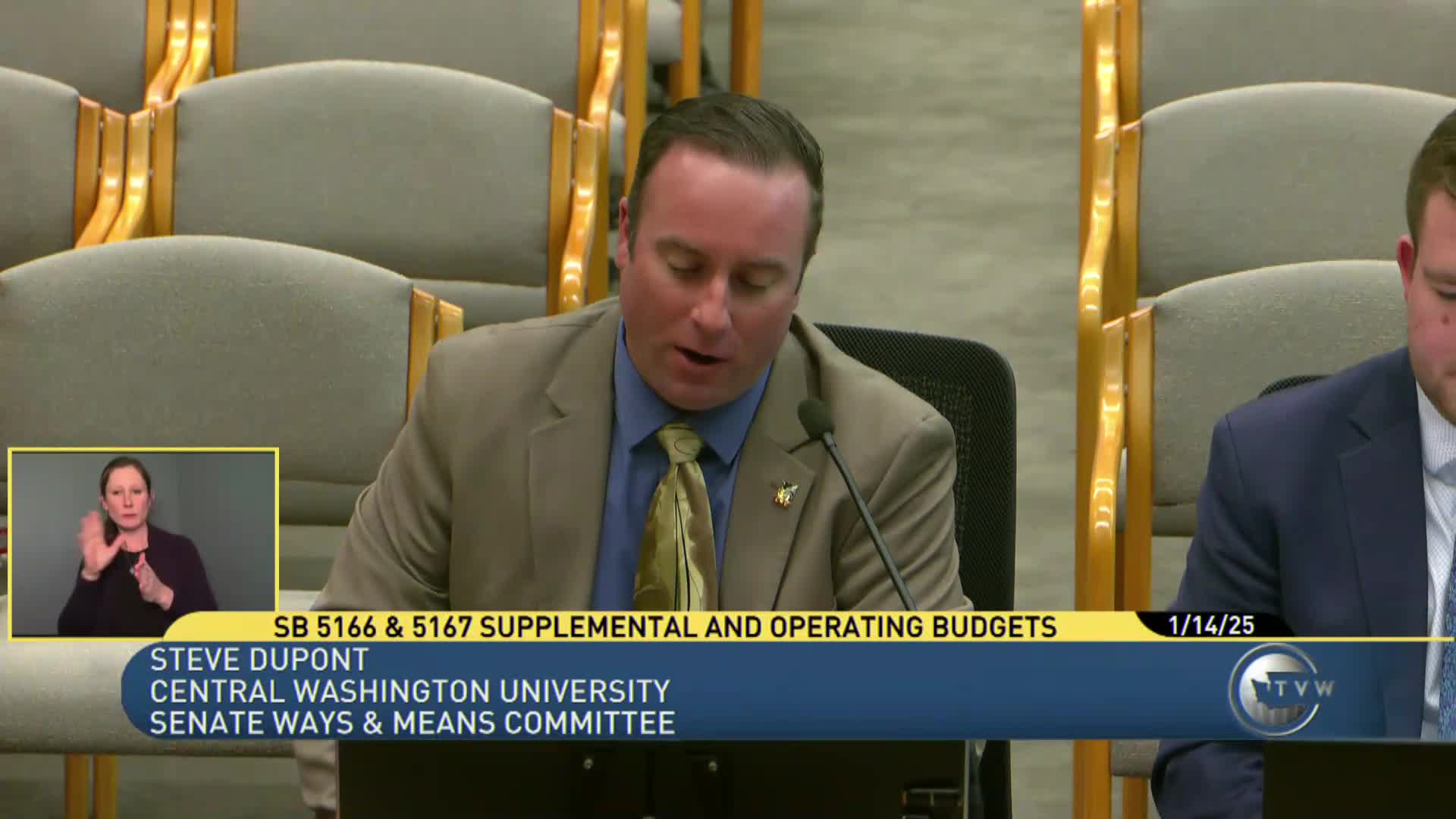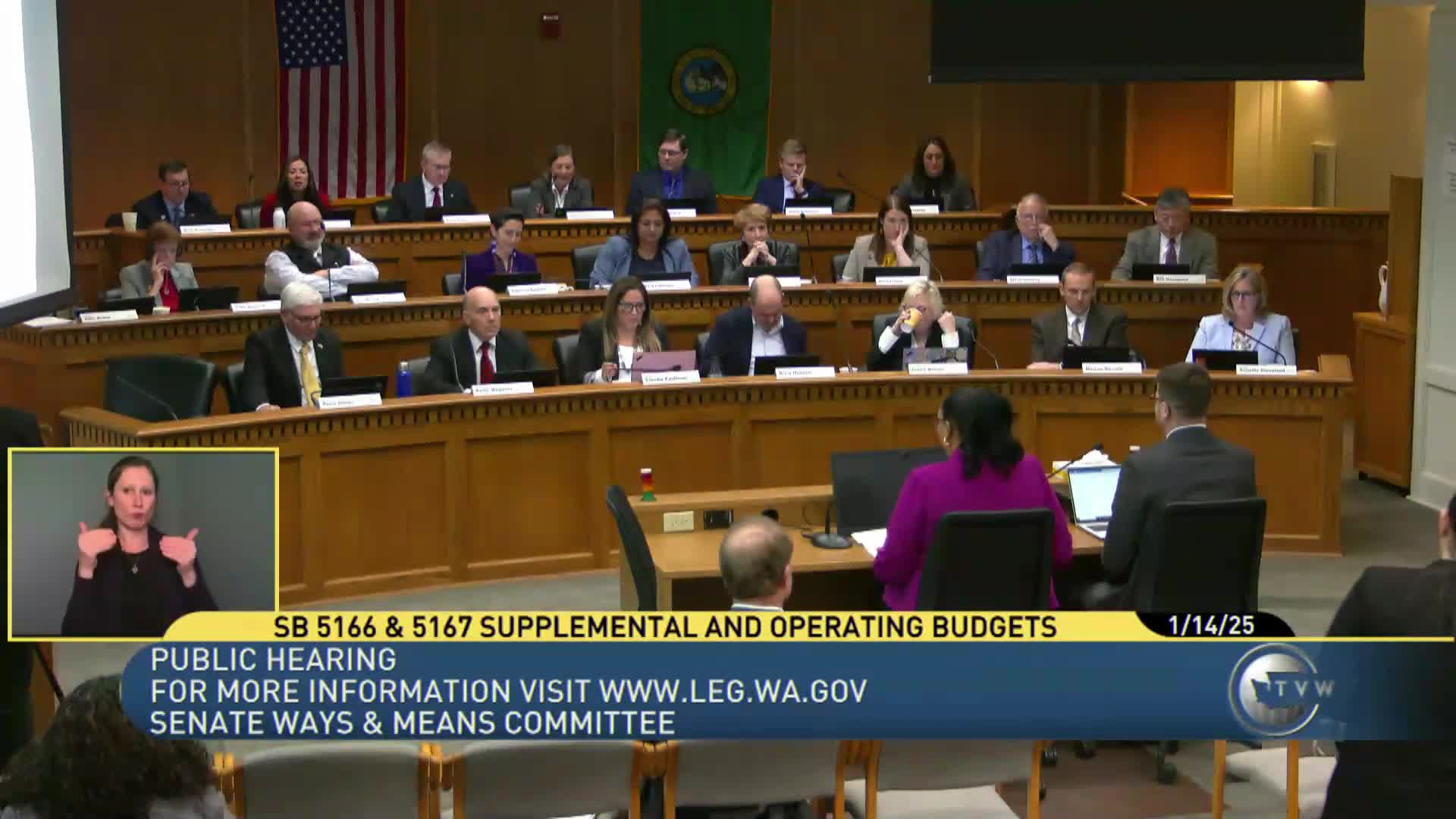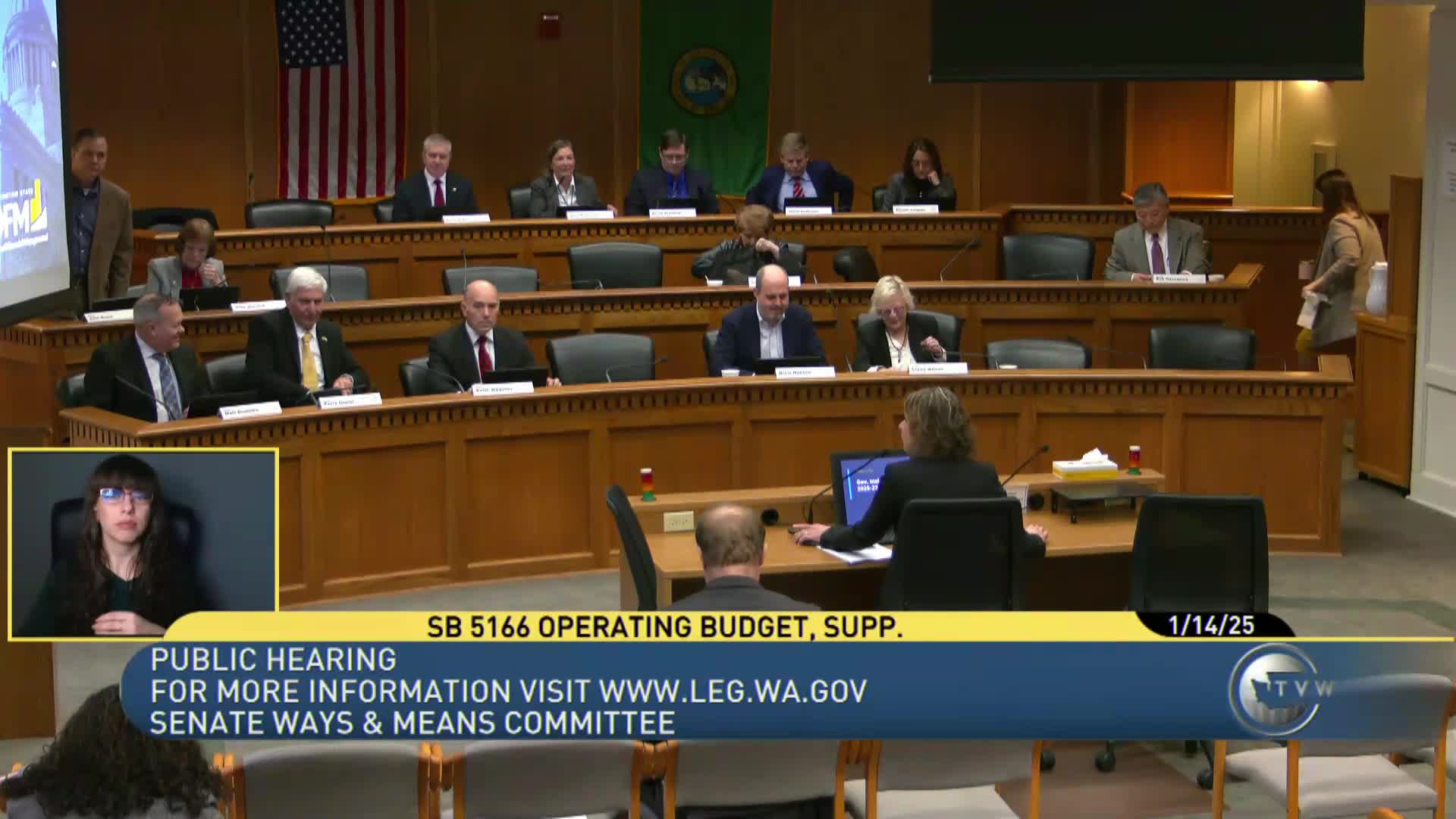Article not found
This article is no longer available. But don't worry—we've gathered other articles that discuss the same topic.

Universities and colleges press Ways & Means on compensation funding, 'fund split' and Washington College Grant

Educators and districts urge Ways & Means to restore K‑12 funding for "big three": MSOC, special education and transportation

